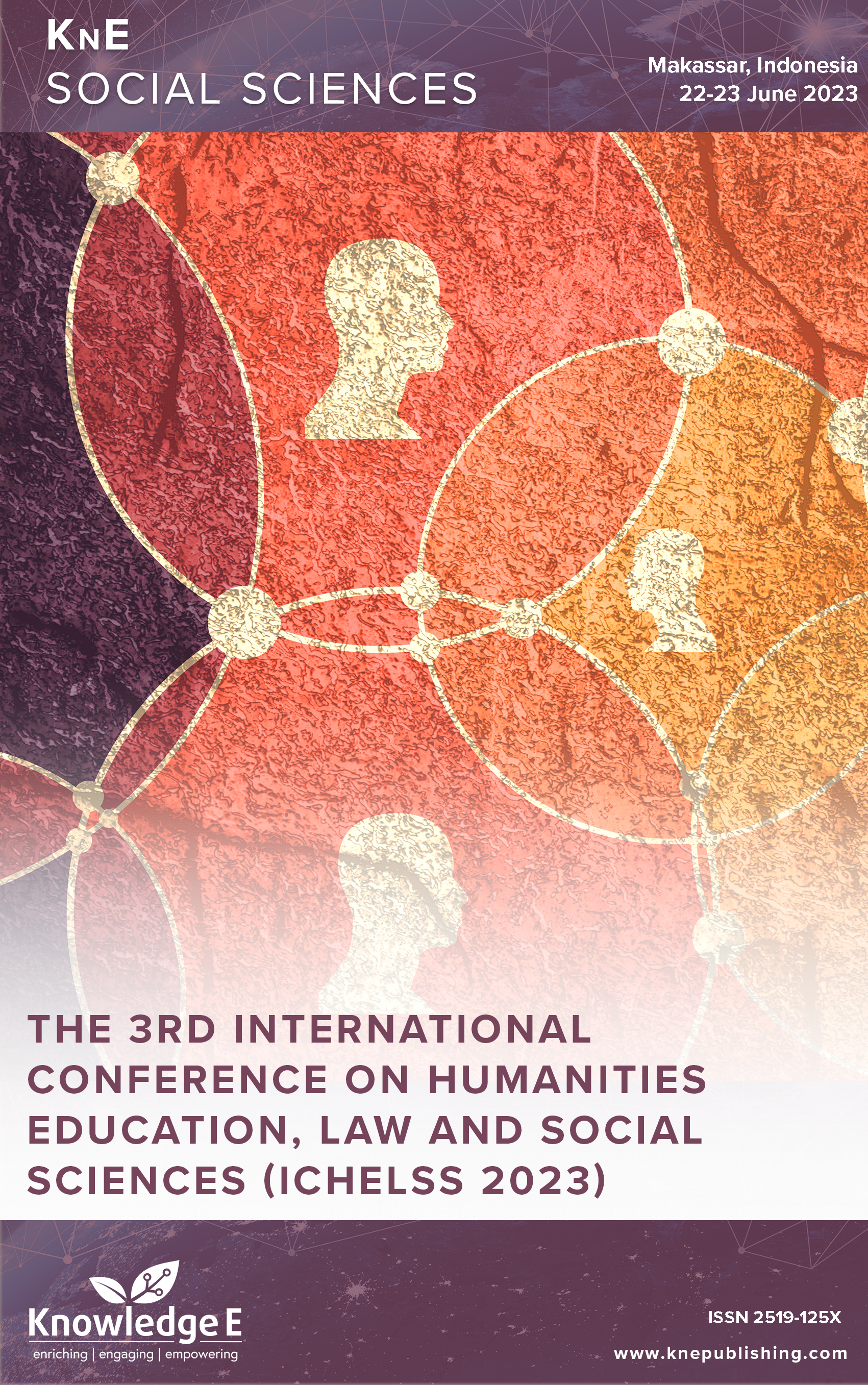Culture of Siri' Na Pacce As Part of Legal Awareness of the Bugis-Makassar Community
DOI:
https://doi.org/10.18502/kss.v9i2.14891Abstract
This research provides a description of the main values of the Siri’ na Pacce culture of the Bugis-Makassar community and investigates the factors contained in the Siri’ na Pacce values that shape the legal awareness of the Bugis-Makassar community. The study includes normative and empirical legal research, using a sociological jurisprudence approach. The flow of sociological jurisprudence requires that in the process of forming legal reforms it must pay attention to public awareness and also pay attention to legal values of the society. Based on the research objectives of this law are descriptive legal research, explicative legal research, and prescriptive legal research. The value of Siri’ na Pesse (in Bugis terminology) or Siri’ na Pacce (in Makassar terminology) in Bugis-Makassarese society teaches about decency in the form of recommendations, prohibitions, rights and obligations that dominate human actions to protect and defend their honor. Three research locations inhabited by Bugis and Makassarese people in South Sulawesi Province were selected for the study, namely Bone Regency, Gowa Regency, and Jeneponto Regency. The results of the study show that the existence of Siri’ na Pacce as an abstract value that lives in the midst of Bugis-Makassarese society, this cultural value undergoes a process of concretization in the form of the Pangngaderreng system (legal system) which is then actualized into the five legal norms contained in Pangngaderreng (Ade, Talk, Wari, Rapang, and Sara). Enforcement of these norms is in the framework of realizing the objectives of law, namely justice, legal certainty, and expediency. The realization of the three legal objectives makes the values of Siri’ na Pacce even stronger in the eyes of the community, which is seen as a form of legal awareness.
Keywords: Siri’ na Pacce culture, legal awareness, Bugis society
References
Abdullah H, Man MB. A historical review of behavioral patterns and views of makassar bugis man. Jakarta: Inti Idayu Press; 1985.
Errington S. Siri’: Territory and political power in the ancient Kingdom of Luwu. Ujung Pandang: South Sulawesi Cultural Foundation; 1977. p. 145.
Andaya LY. A village perception of Arung Palakka and the Makassar War of 1666- 1669. Asian Study Association of Australia, Singapore-Kuala Lumpur-Hongkong; 1979. p. 366.
Marzuki L. Siri’: Legal awareness section of Bugis-Makassar (a study of legal philosophy). Ujung Pandang: Hasanuddin University Press; 1995.
Siri’ na Pacce Culture Article. http//:www:lobelonanamakassar.blogspot.com
Ankersmit, Frank Accueil. Reflections on history: Modern opinions about philosophy of history, p. 17. Translated by Dick Hartoko, Gramedia, Jakarta.
Mattulada L. An analytical painting of the political anthropology of the Bugis. Second Printing. Ujung Pandang: Hasanuddin University Press; 1995.
Wahana P. Max Scheler’s axiological ethical values. Yogyakarta: Kanisisus; 2000. p. 59.
Friedman LM. American law: An introduction. Second Edition, translated by Wisnhu Basuki, 2001. American Law An Introduction, First Printing, PT. Tata Nusa, Jakarta; 1988.
Mertokusumo S. Knowing the law of an introduction. Yogyakarta: Liberty; 2004. p. 15.
Tanya BL, et al. Legal theory: Human orderly strategies, across space and generations. Yogyakarta: Genta Publishing; 2010. p. 143.
Gonggong A, Muzakkar AQ. From patriots to rebels. Ombak, Yogyakarta. 2004.

